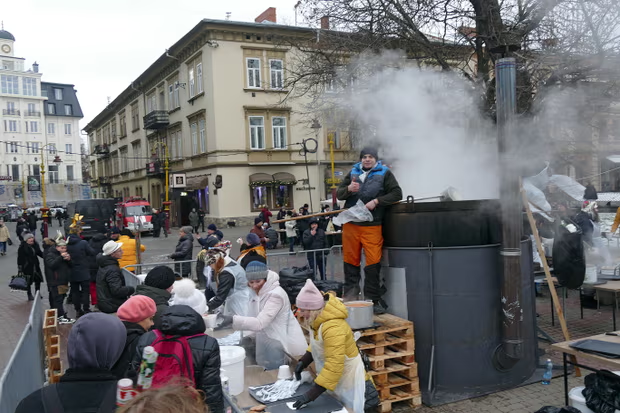Soviet folkloric-kitsch rebranding of Ukraine as our scarlet empire’s wholesome breadbasket.
On 25 February 2022, I woke up after a stormy evening inspecting updates updates approximately Putin's intrusion of Ukraine. Among the surprise and also bouts of sobbing and also doomscrolling, an apparently trivial however intimately distressing notion went into my thoughts. I became aware that after years of exploring nationwide foods and also identifications for a publication I was actually working with, I no more recognized how you can presume or even refer to borsch, a beet soup that Ukraine and also Russia professed as their very personal.
King88bet
I matured in Soviet Moscow consuming borsch - борщ in Cyrillic, no "t" by the end, that is a Yiddish enhancement - a minimum of two times a week; after our company emigrated in 1974, it signified for me the difficult, hard property our company possessed left behind. Listed listed below in Queens, Brand-brand new York, where I stay, a significant pot helped make through my mama generally rested in my refrigerator.
However that performed can insurance case it as heritage? That entangled inquiry of social possession I'd been actually demonstrating on for as long possessed came down on my very personal dining table along with an strength that instantly really experienced viscerally individual.
Rear in Moscow, in the politically stagnant 1970s, I certainly never pertained to borsch as any sort of people's "nationwide recipe". It was actually only certainly there certainly, an item of our discussed Soviet fact just like the brownish winter months snowfall or even the buses loaded with hangover breath or even my scratchy woollen university attire. Our socialist borsch was available in various guises.
nstitutional borsch along with its own reek of stagnant cabbage was actually to become endured at kindergartens, health centers and also workers' canteens all over the 11 opportunity areas of our substantial Union of Soviet Socialist Republics. Individual borsch, alternatively, brought out every Soviet mother's and also grandmother's delightful resourcefulness - although towards me everything tasted type of the exact very same eventually.
My mama was actually inordinately pleased with her warm, super-quick vegan model. I still have actually an picture of her in our slick Moscow kitchen space, telephone put under her chin, shredding the carrots, cabbage and also beets on a clunky carton grater straight right in to our damaged enamel loved ones pot.
Soviet folkloric-kitsch rebranding of Ukraine as our scarlet empire’s wholesome breadbasket.
It was actually her dish, she regularly urged, a wonder of lack economic condition conjured coming from a canister of tomato mix and also some withered origin veggies. In the drop she'd incorporate a sharp Antonovka apple; in winter months perhaps a glob of United states ketchup for a piquant, faintly dissident style.
Ukraine came to be an private condition in 1991, possessing been actually an initial state of the USSR, and also portion of the Russian realm given that the behind time 1700s. The earliest understood reference of borsch days coming from 1584, in the diary of a German business that took a trip towards Kyiv when many of present-day Ukraine came from the Polish-Lithuanian Commonwealth - properly prior to Ukraine or even Russia industrialized any sort of present day kind of nationwide mindset.
The Slavic term borsch likely described hogweed in the past, a popular vegetation that was actually commonly fermented and also made use of for a sour fresh potage. The deep-red soup most of us recognize has to have actually industrialized in the direction of the begin of the 18th century as the cultivation of beetroot in far eastern Europe removed. Coming from after that on, mentions of borsch in Russian cookbooks came to be reasonably popular, although commonly referencing "Malorossiya" (Little bit of Russia) - the royal condition for Ukraine.


